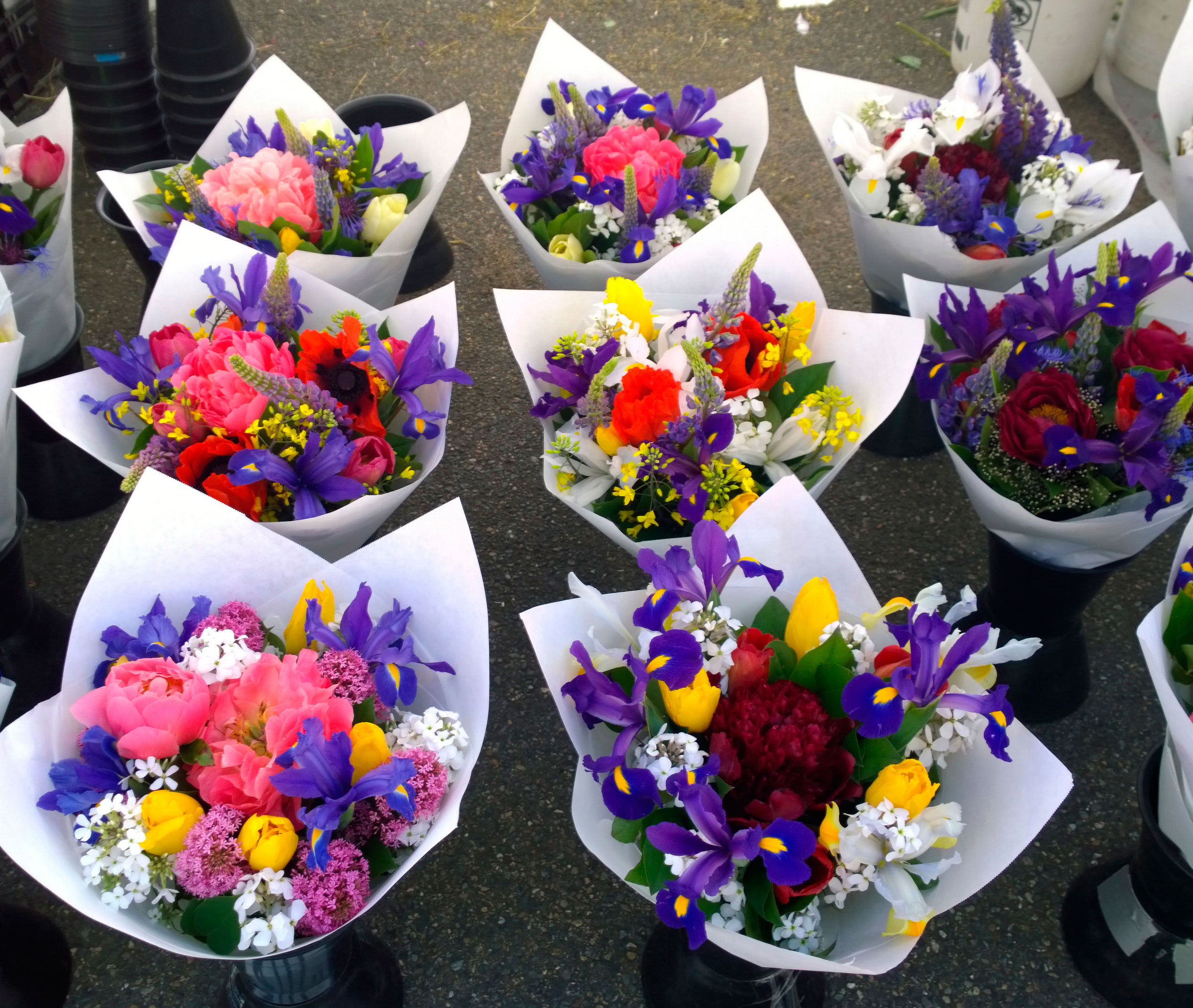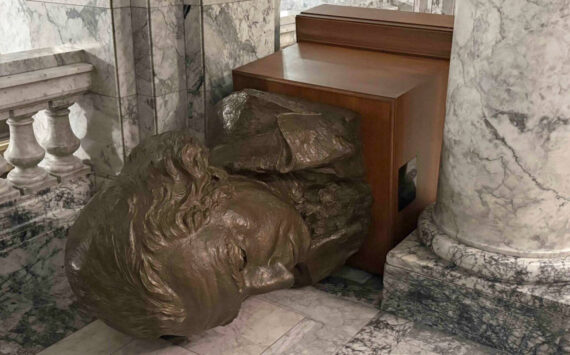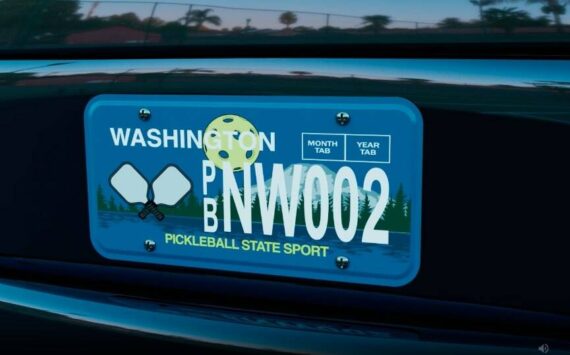Keeping those birds and bees alive through the winter
On Tues., Oct. 22, Brown & Haley, with the help of City of Tacoma’s Environmental Services, created and donated 1,500 gallons of premier sugar water to local beekeepers in the community. The sugar water was created when contractors cleaned the 40’ tall sugar-storing silos, used to make Almond Roca®, on Brown & Haley’s property.
“This is public/private partnership at its best,” said Pierson Clair, Brown & Haley CEO. “We needed to clean our sugar silos and instead of just sending us a bill for the excess wastewater being created, the City of Tacoma with help from Tacoma Public Utilities, created a solution that helps our community.”
This creative solution came from a City of Tacoma, (COT) wastewater employee. During consultations with Environmental Services on how best to dispense of the sugary byproduct created during the cleaning process, an employee recommended saving the water for beekeepers. Beekeepers use sugar water to feed bees in Washington over the winter months when nectar supplies are low. Instead of being thrown away, this premier sugar water will get recycled by local bees into honey.
“This has been a great experience to work with the local industry and develop this synergy,” said Alan Aplin, City of Tacoma Business Operations account executive. “For Tacoma to sustainability dispose of a waste stream of this sort, to benefit our local environment, is a win-win situation.”
Work has gone into creating a food-safe solution, including using only potable water in the cleaning process and food-safe, clean equipment to transport and store the sugar water. The sugar water was delivered to COT’s central wastewater treatment plant in Tacoma, where beekeepers will be able to pick up the free sugar water upon request.
“We have a saying around here, ‘make it Tacoma,’ and this is why,” said Jackie Flowers, director of Tacoma Public Utilities. “One of our jobs as a public utility is to find creative solutions to ordinary problems in our community. By working together with the city and local businesses, we’re thinking outside the traditional box of our services, saving the community money and resources every time we do. Plus, I happen to be a huge Almond Roca fan.”
This a creative pilot between Brown & Haley and the City of Tacoma (COT). If it works, Brown & Haley may continue this process every time they need to clean their sugar stores.
How to request Almond Roca® sugar water
In mid-November, Environmental Services will be ready to dispense the sugar water to local beekeepers and hummingbird enthusiasts. Please call TAGRO at (253) 502-2150 if you are interested in receiving updated information about the sugar water’s availability.
– City of Tacoma


Learning from the birds and bees
By Morf Morford
Tacoma Daily Index
This story of Brown & Haley making good use of its sugar water – formerly known as waste – reminds me of what Wendell Berry calls a “good solution” – an act that solves several problems at once, creates minimal or even no new problems and costs close to nothing. (1*)
It is not that complicated. We could, if we wanted, apply this same sort of thinking to any social problem.
Drug interdiction, when you think about it, is very simple.
Our drug laws and policies have near zero impact on actual illegal drug use – or even the price or availability on the street.
The bottom line reality of illegal drug use could not be more basic; people who want to use illegal drugs will do so no matter the cost or legal jeopardy.
Those of us who choose not to use illegal drugs do not make that choice based on the legal status of any given drug.
The continuing cost of petty crime, lost opportunity and incarceration in the name of our “war on drugs” is vast.
In fact, when we count drug arrests or incarcerations (a massive societal cost) as our marker of “success” we are doomed to failure as a society.
Isn’t it obvious that a healthy society would have near zero drug arrests and resultant incarcerations?
The same goes for homelessness. When it costs a municipality more to have people homeless than it does to house them, we have surely hit a stage of cultural confusion and incoherence.
In both cases, homelessness and illegal drug use, our inability to think clearly and cogently has led us into a morass of self-perpetuating, if not contradictory polices that sap our budgets, help no one and clog our courts and streets.
Homeless people need housing. Once that primary need is met, the whole constellation of circumstances that brought them to that point can be addressed.
A quick review of Maslow’s hierarchy of needs might remind us of the necessary sequence; the most essential needs – like safety, security, food and shelter – must be met first, and then targets might be set for the more nuanced needs like companionship, trust and a sense of accomplishment and purpose.
Drug addicts don’t need “programs” they need something else to set their eyes on, a community that knows and cares for them to keep them on course and a reason to live that has nothing to do with substance use or dependence.
Iceland has had systems like this in place for years – https://www.csmonitor.com/World/Europe/2017/1229/Iceland-has-largely-kicked-teen-drinking.-What-can-it-teach-other-countries.
All this costs far less than the “solutions” we now have in place.
Like Brown & Haley’s use of its sugar water, these enduring solutions are obvious once we look past what seemed like “easy” answers and look at what meets every aspect of the problem – not just one part of it.
(1*) http://www.seedbed.org/wp-content/uploads/2013/09/Berry_Solving_for_Pattern.pdf








